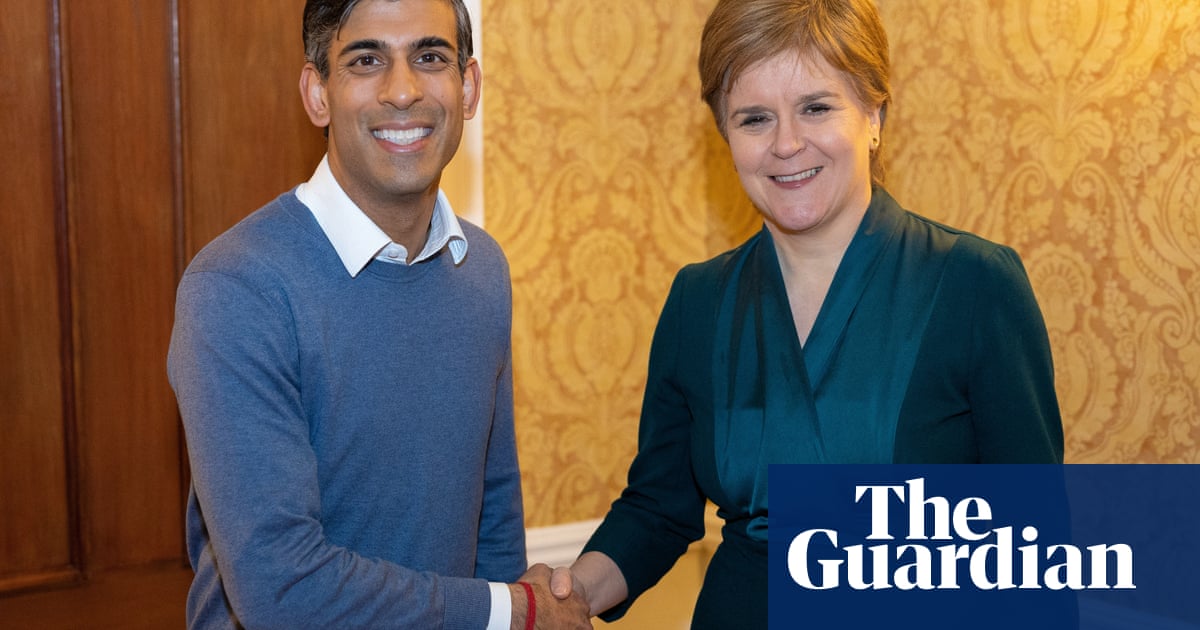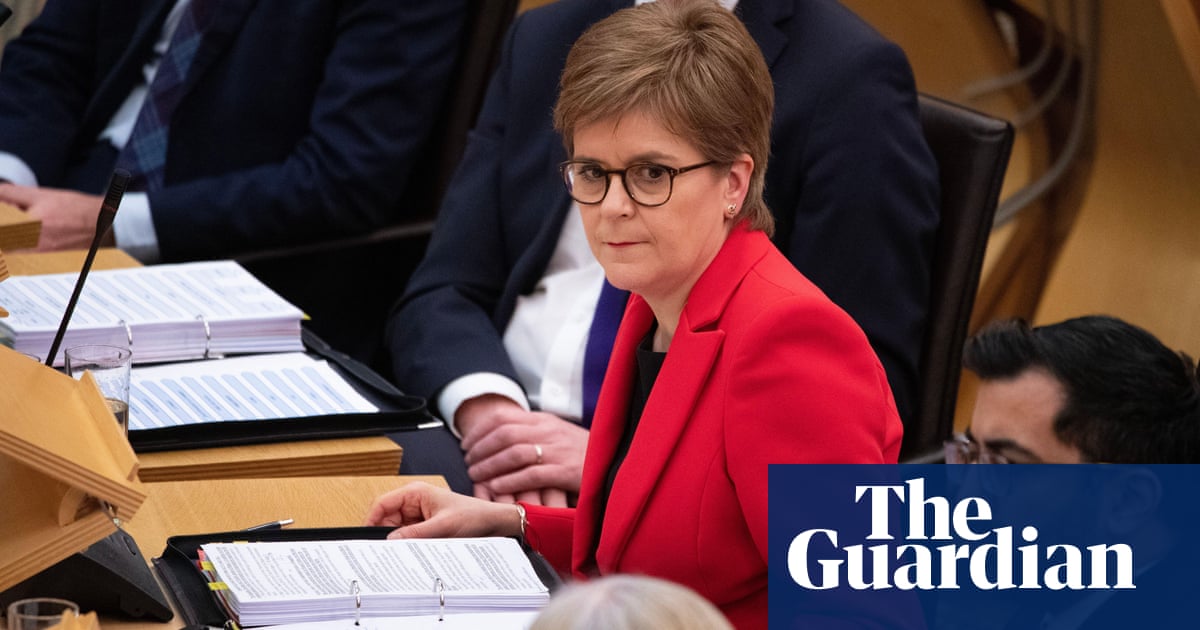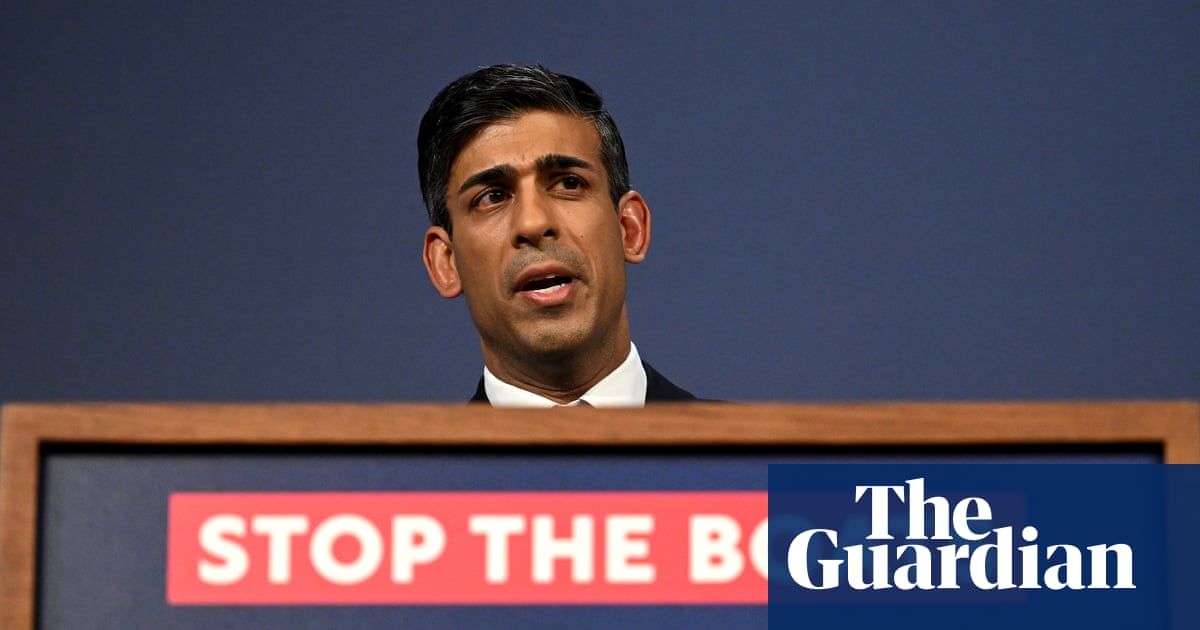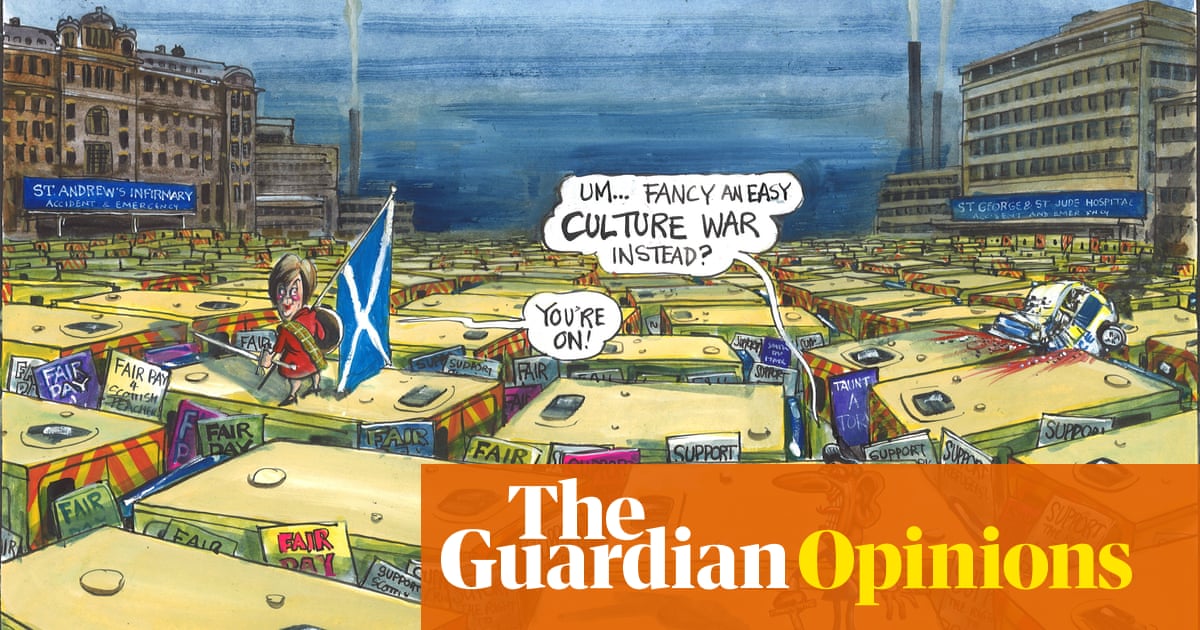
Rishi Sunak has waded into the row over Scotland’s gender recognition bill, insisting it was “perfectly reasonable” to assess its potential impact on women.
The prime minister confirmed on Friday that the UK government is considering blocking the new law, which makes it easier for trans people to legally change their gender.
Westminster officials now have 28 days to decide whether to deploy the “nuclear option” of prohibiting the bill from going for royal assent, after Scotland on Thursday became the first part of the UK to introduce a self-identification system.
The UK’s Scottish secretary, Alister Jack, said he could invoke section 35 of the Scotland Act, which in effect gives him a veto on laws he believes have an impact on constitutionally reserved matters – a decision that could set the stage for a bitter constitutional clash.
While gender recognition is devolved to Holyrood, equalities legislation – which the new law will interact with – is reserved to Westminster.
Sunak, speaking on Friday during a visit to a homeless shelter in London, said: “Lots of people have got concerns about this new bill in Scotland, about the impact it will have on women’s and children’s safety.
“So I think it is completely reasonable for the UK government to have a look at it, understand what the consequences are for women and children’s safety in the rest of the UK, and then decide on what the appropriate course of action is.”
In a statement overnight the UK equalities minister, Kemi Badenoch, reiterated her worries over what she said had been a bill passed despite significant opposition among sections of the SNP and some equalities groups. Badenoch said she shared their concerns “on this bill’s impact on the functioning of the Equality Act, which is designed to protect all UK citizens”.
Any move to block the bill by arguing that it conflicts with the Equality Act seems likely to end in a court battle, with Shona Robison, Scotland’s social justice secretary, saying the Scottish government would push back hard against this.
“The bill as passed is absolutely within legislative competence and, of course, was backed by an overwhelming majority with support from all parties,” she told BBC Radio Scotland. “I think any attempt by the UK government to undermine what is, after all, the democratic will of the Scottish parliament, will be vigorously contested by the Scottish government.”
The Scottish government is understood to be waiting for the dust to settle after multiple threats of intervention in the run-up to the bill. It believes ministers in Westminster would need to be highly confident of their legal position to activate section 35, which has never been used in the history of the Scottish parliament.
Helena Kennedy, the Scottish KC and Labour peer, told the BBC’s Today programme she believed it would be “absolute folly” to block the bill. “The idea that the Scottish parliament should be overridden by Westminster because the Conservative party don’t like this would really be very disruptive to the unity of the United Kingdom,” she said.
After the recent supreme court ruling that the Scottish parliament does not have the power to legally conduct a second independence referendum, the first minister, Nicola Sturgeon, has repeatedly described Sunak’s government as “democracy deniers”, a narrative likely to be boosted by a Westminster challenge to Holyrood law-making.
While any court fight would centre on the constitutional issues, the wider argument is infused with culture war differences, where trans rights have become a key battleground.
Badenoch is an enthusiastic participant in the culture war. Sunak has generally stayed clear, although in the summer Conservative party leadership contest he regularly pledged to protect “our women” from supposedly “woke” values.
The Scottish government hailed what it called “a historic day for equality” after the vote, in which MSPs strongly backed plans intended to make it easier and less intrusive for individuals to legally change their gender, and to extend the streamlined system for obtaining a gender recognition certificate (GRC) to 16- and 17-year-olds.
The 86-39 vote, which saw the biggest SNP backbench revolt in the party’s 15 years in power and was prefaced by demonstrations in the public gallery, followed three days of intense and at times emotional debate at Holyrood.












